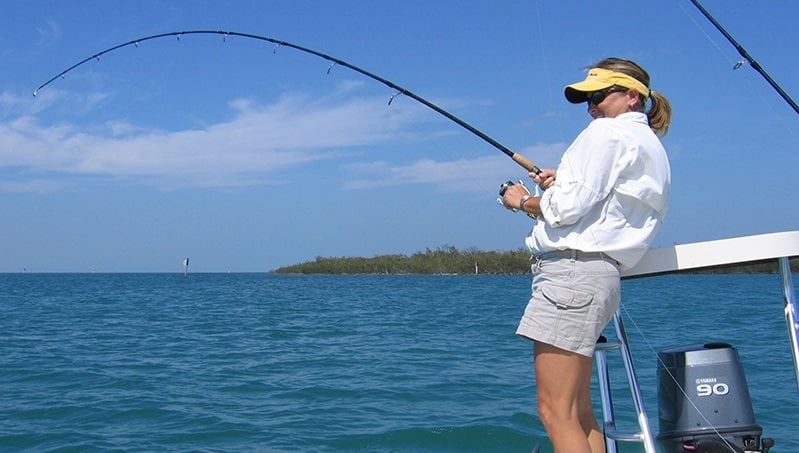During the week of April 4, the Gulf of Mexico Fishery Management Council met in Gulfport, Mississippi to discuss multiple issues that are important to the recreational fishing industry and community. Below is some information on the discussions and how they will impact recreational fishing throughout the region.
Gag
According to the latest stock assessment, gag is overfished and currently undergoing overfishing. NOAA Fisheries is expected to implement an interim rule this spring to reduce catch limits and shorten the 2023 recreational season to 71 days (September 1 through November 10). Previously, gag season was open from June 1 through the end of the year. The Council is also considering long-term measures to rebuild the stock and suggested the below alternatives, which ASA supports.
- Reduce annual catch limits for gag and set the recreational annual catch target at 20% below the recreational annual catch limit. A 20% buffer was selected by the Council based on concerns about uncertainty in catch projections for the recreational fishery and potential recreational dead gag discards.
- Convert the current sector allocations (based on MRIP) to Florida’s State Reef Fish Survey currency, since Florida’s State Reef Fish Survey will now be used to manage and monitor this primarily Florida fishery. Although this will slightly shift the percentages allocated to the recreational and commercial sectors, this conversion essentially maintains the status quo in terms of what happens on the water.
- Open the recreational season for gag on September 1, similar to the proposed interim rule for 2023. Under this alternative, the season would end each year when the recreational annual catch target is projected to be met, which would likely vary. Although it’s a good thing that Florida fishermen have reported seeing improvements in the gag population since the assessment was completed, if fishermen encounter a lot of fish during the open season, the recreational fishery could meet its annual catch target very quickly. As rebuilding progresses, the Council will likely need to revisit gag regulations, including the recreational season dates, to allow for reasonable recreational harvest opportunities.
The Gulf Council will be hosting public meetings on gag throughout May via webinar and at several locations in Florida before taking final action. Gag fishermen won’t want to miss this chance to weigh in on the future of Gulf gag management!
Red Snapper
Earlier this year, red snapper state data calibrations took effect, which are used to convert state red snapper quotas from MRIP currency to the state data collection currencies used for monitoring landings. ASA previously commented on this conversion to NOAA Fisheries, noting the significant issues with the calibrations now in effect, the process and methods used to arrive at the calibration ratios and the resulting negative impacts the ratios will have on Alabama and Mississippi. While the Council has noted that calibration is necessary, they also recognized issues with calibrating state data to MRIP, particularly when differences between the state programs and MRIP are unresolved. The Council is now taking steps to update the calibration ratios for Florida, Alabama, and Mississippi using more recent landings data based on recommendations from the Council’s Scientific and Statistical Committee. These steps are intended to more realistically express the relationship between landings observed in the state data programs and MRIP through the calibration ratios. If approved by the Council and implemented by NOAA Fisheries, the proposed ratios would result in larger quotas for all three states in future seasons. The Council also discussed initiating a state-by-state allocation review for Gulf red snapper considering the new state data calibrations.
Meanwhile, Gulf states are beginning to announce the dates for their 2023 seasons. Louisiana and Alabama’s seasons both open on May 26; however, Alabama’s red snapper season is only open for four-day weekends. We expect the other states to announce their seasons over the next few weeks. The federal for-hire season begins on June 1, but NOAA Fisheries has yet to announce how long this season will run.
Recreational Fisheries Management
At the tail end of the February Council meeting, the Council approved a motion to embark on a recreational fisheries initiative. Under the initiative, the Council would evaluate the efficacy of current federal recreational reef fish management in the Gulf of Mexico and develop future management approaches and guidance intended to prevent overfishing, address discards and/or discard mortality, account for uncertainty in recreational data and provide for innovative new management approaches to regulate federally managed recreational fisheries. Although ASA supports this initiative, we expressed our concern in public comments that this initiative may predetermine the management strategies to be considered for the recreational fishery, ultimately fostering an atmosphere of distrust within the recreational fishing community. At the April meeting, the Council responded to this feedback by revising the motion that establishes the recreational fisheries initiative to remove the specific strategies to be considered.
While we don’t have many details about how this initiative would work, we look forward to engaging with the Council on how to encourage a productive dialogue with the recreational fishing community to improve recreational fisheries management.
Additional Issues
The Council also approved a motion to request that NOAA Fisheries, the Council and the Gulf States Marine Fisheries Commission provide collaborative support to the five Gulf states’ fisheries management agencies on developing a universal, state-managed recreational saltwater angler landing permit program to provide more precise fishing effort for use in both management and assessments. Each of the Gulf states already uses permits and/or recreational data collection enhancements to inform management of red snapper, while several states are also using these tools to improve recreational fisheries data on other federally managed species. Additional collaboration between the states and federal managers could be a step towards addressing differences in data collected by the programs and ensuring that state data are used to inform federal management and assessments.
The Gulf Council is scheduled to hold its next meeting June 5-8 in Mobile, Alabama. If you have any questions on the Council’s work or the above issues, please don’t hesitate to contact me via email.
Share This Article, Choose Your Platform:
Recent Posts



